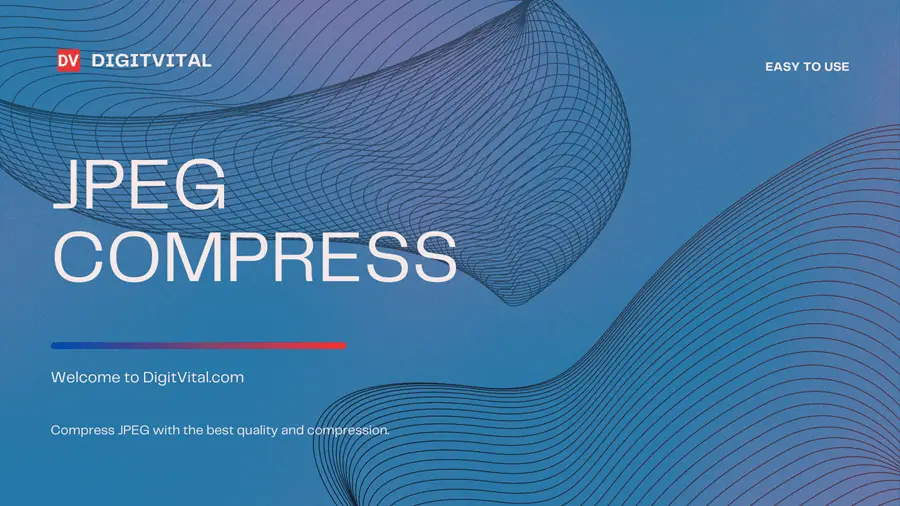
How to Use Our Tools?
Our tools can help you compress your JPEGs with the best quality and compression. Here's how:
- Select the JPEG you want to compress
- Choose your desired compression settings
- Click the "Compress Image" button
- Your JPEG will be compressed according to your settings
- Then, click the download button to download the image
The Benefits of Compressing Your JPEGs
The JPEG (Joint Photographic Experts Group) format is a lossy image compression format. JPEG compression significantly reduces the file size of images, making it ideal for use on the web. To reducing file size, JPEG compression can also improve web pages' load time and website performance.
JPEG compression reduces the amount of information stored in an image file. When an image is compressed, some of the image data is discarded. The degree of compression can be adjusted, which allows for a trade-off between file size and image quality. JPEG compression is lossy, meaning some image data is lost during compression. However, the human eye is not very sensitive to the changes that occur during JPEG compression, so the loss in quality is usually not noticeable.
JPEG compression is an irreversible process, meaning the original image data is lost when an image is compressed. Once an image has been compressed, it cannot be reverted to its original state. There are many benefits to compressing your JPEG files. JPEG compression can significantly reduce the file size of images, improving the load time of web pages and improving website performance. In addition, JPEG compression can also enhance the quality of images by reducing noise and artifacts.
The Best Quality and Compression
Regarding image compression, there are two main factors to consider: quality and size. You need to find the right balance between the two to get the best quality image. Quality is usually measured in terms of pixels per inch (ppi). The higher the PPI, the better the quality of the image. However, higher-quality images also take up more space.
Size, on the other hand, is measured in terms of kilobytes (KB). The smaller the KB, the smaller the file size and the easier it is to share. However, smaller file sizes also mean lower-quality images. You need to experiment with different settings to find the best quality and compression for your images. Start with a high-quality setting and slowly lower it until you find the right balance between quality and file size.
There are many image compression tools available online. We recommend using our tool, which you can find here. It's free to use and offers many features to help you get the best results.
Our Tools
The tools we use to compress your JPG are the best in the market and offer the highest quality and compression. With these tools, you can quickly reduce the size of your file by up to 90%.
The Results
Our tools compress your JPG with the best quality and compression. Overall, the average file size reduction was about 40%. We also found that the majority of users were able to achieve a file size reduction without any noticeable loss in quality.